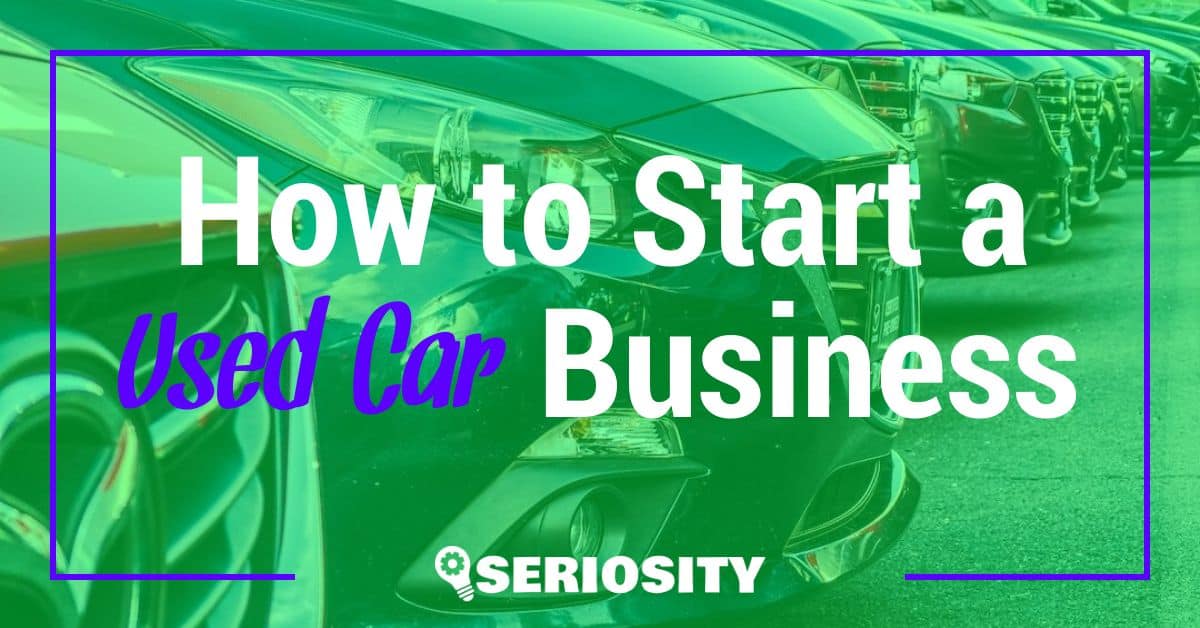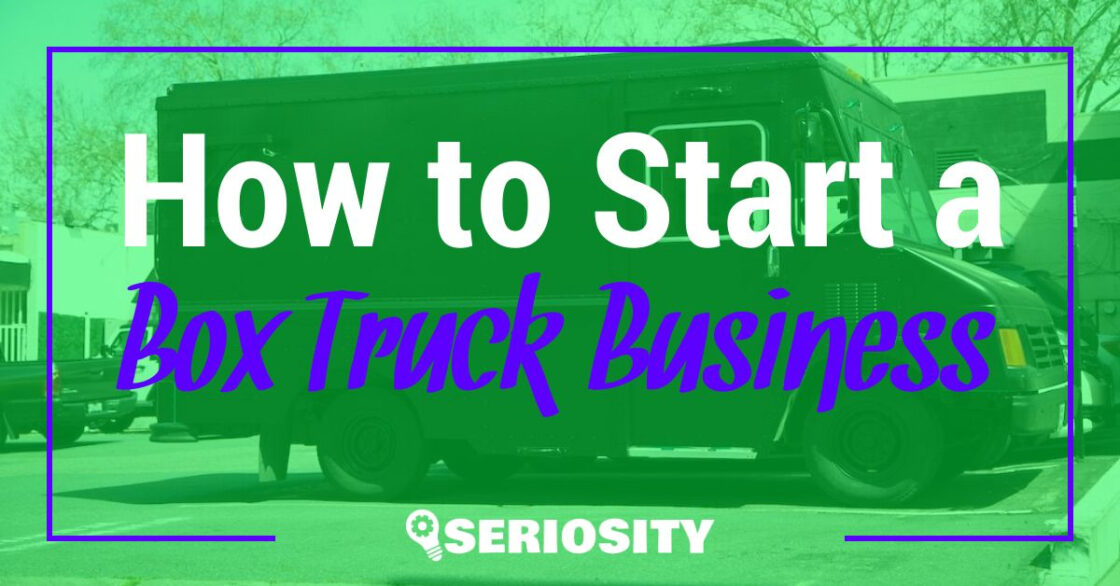Starting a used car business can be a profitable and rewarding endeavor for entrepreneurs who have a passion for automobiles and an aptitude for sales. It offers the potential for significant profits, particularly as second-hand vehicles continue to be in high demand. There are a few essential steps to follow to ensure you build a robust and successful used car dealership, from choosing the right business structure to developing an effective marketing strategy.
Before jumping into the business, it’s crucial to have a solid understanding of the industry and prepare a comprehensive business plan. This will help you identify your target market, analyze competitors, and anticipate any potential challenges that may arise. Additionally, be prepared for various costs associated with starting a used car dealership, such as registration fees, licenses, and securing a location. Researching and navigating legal requirements and regulations is also a critical aspect of setting up a successful used car business.
As you continue to explore the concept of launching a used car dealership, it’s essential to focus on aspects such as securing startup funding, if needed, and building your brand’s recognition. With careful planning and a dedication to the process, you can position your used car business for long-term growth and success.
Choosing the Used Car Business Type
When starting a used car business, one of the first decisions you’ll need to make is whether to operate as an independent dealership or as a franchise dealership. Each option has its advantages and drawbacks, which will depend on your personal preferences, industry experience, and financial resources. To help you make the right choice for your business, let’s explore both independent dealerships and franchise dealerships.
Independent Dealership
An independent used car dealership operates without the connection to a larger brand or automaker. As an entrepreneur starting an independent dealership, you have more control over various aspects of your business, such as choosing the cars you want to sell, determining prices, and marketing strategies. Benefits of an independent dealership include:
- Flexibility: You can adapt your business model and strategy to the local market and customer needs without the limitations of a franchise agreement.
- Lower initial investment: Without franchise fees or royalties, the startup cost for an independent dealership is typically lower than that of a franchise dealership.
However, operating an independent dealership also comes with challenges, such as:
- Limited recognition: Building a strong brand and reputation from scratch can be difficult and time-consuming.
- Less access to support: Unlike franchise dealerships, independent dealerships don’t have access to shared resources, training, or ongoing support from a parent company.
Franchise Dealership
A franchise used car dealership operates under an agreement with an established brand, like a large auto manufacturer or a well-known used car dealership chain. Franchise dealerships have several advantages, including:
- Brand recognition: The franchise’s established reputation and customer base can help your dealership grow more quickly than an independent dealership.
- Support and resources: Franchise parent companies often provide support in terms of marketing, training, and ongoing assistance, increasing the likelihood of success.
However, there are drawbacks to consider:
- Fees and royalties: Franchise dealerships usually require an upfront investment to join the franchise and often have ongoing fees or royalties that can impact your profit margins.
- Limited control: Franchise agreements may restrict certain aspects of your business, such as the types of cars you can sell or the pricing strategy you must follow.
In summary, deciding between an independent dealership or a franchise dealership for your used car business depends on your preferences, financial resources, and overall goals. Evaluate your market, competition, and potential customer base before making a final choice.
Finding Your Niche
Finding your niche is an essential step in starting a used car dealership. Identifying a specialized market segment will help you stand out from the competition and cater to specific customer needs. Many used car dealers do not exclusively affiliate with a single auto manufacturer but choosing a niche can help you more effectively market to your target audience.
One option for a niche is to focus on a specific brand or make of vehicle. By selectively featuring well-known car brands such as Ford, Toyota, or BMW, you can distinguish your dealership from others in the area. Offering specific makes and models, such as Mustangs or Priuses, can also narrow your focus, allowing you to become an expert in your niche and build strong relationships with knowledgeable customers.
Another consideration for your niche is your target audience’s demographic factors like age, income level, marital status, occupation, and location. Catering to specific demographic groups, such as families looking for budget-friendly minivans or millennials searching for fuel-efficient compact cars, will make it easier for you to tailor your inventory and marketing efforts.
Additionally, you may choose to concentrate on a particular price range or vehicle type, such as only selling used trucks, sports cars, or entry-level vehicles. Depending on your location and target customer base, specializing in eco-friendly hybrid or electric vehicles could also prove a profitable niche.
In conclusion, when selecting your used car business’s niche, take time to research your market, competition, and demographics, and consider focusing on specific brands, makes, models, or vehicle types. By finding the appropriate niche, you’ll ensure a more profitable and targeted business strategy.
Creating a Business Plan
Executive Summary
The executive summary provides an overview of your used car business, including the purpose and goals. It should briefly describe the specific type of used car dealership, target market, and the unique selling points. This section helps lenders and investors understand the vision of your business.
Market Research
Before starting your used car business, it is crucial to conduct thorough market research. This includes identifying:
- The size of your potential target audience
- Customer preferences and purchasing habits
- The average price range and types of used cars in demand
- Regional trends and seasonal variations
This research will help you understand the market and tailor your services to meet the needs of your customers.
Competition Analysis
A competitive analysis involves evaluating the strengths and weaknesses of competing dealerships. This should include aspects such as:
- Location
- Pricing strategies
- Inventory selection
- Online presence
- Customer reviews
Identifying the areas where your business can outperform competitors can help you gain a competitive edge in the market.
Marketing Plan
Developing a marketing plan is essential to reach your target audience and promote your used car business effectively. Key elements to include are:
- Branding and positioning
- Advertising methods (online, print, billboards)
- Social media strategy
- Promotions and incentives
- Partnerships with local businesses
By implementing a comprehensive marketing plan, you can increase visibility and generate leads for your dealership.
Operations Plan
An operations plan outlines the daily functions of your used car business, such as:
- Sourcing and maintaining inventory
- Evaluating the condition and pricing of vehicles
- Staffing and training
- Establishing an efficient sales process
- Record keeping and regulatory compliance
Having a well-structured operations plan in place will ensure smooth business functioning and mitigate potential risks.
Management Team
Introduce your management team, demonstrating their qualifications and expertise in the used car industry. This will help investors and stakeholders gain confidence in your business strategy. Include the following:
- Names and titles of key team members
- Brief biographies highlighting relevant experience
- Roles and responsibilities within the business
- Plans for expanding or refining the team as the business grows
Financial Plan
The financial plan showcases the start-up costs, costs of operations, projected cash flow, and expected profits of your used car business. Important aspects to consider are:
- Initial investment costs (business registration, license fees, location deposit, etc.)
- Revenue projections
- Variable and fixed expenses
- Break-even point analysis
- Potential sources of additional funding (business loans, investors)
By providing a detailed financial plan, you can demonstrate the viability of your used car business and attract potential investors or lenders. Additionally, it will serve as a useful tool for managing your business finances as it grows.
Determining a Location
When starting a used car business, one of the most crucial factors to consider is the location. Whether you’re setting up an online or a physical dealership, where your business is situated can heavily impact its success. This section will discuss the pros and cons of an online vs. a physical location, as well as whether to lease or buy a location for your business.
Online vs. Physical Location
For those who prefer an online approach, there are several advantages:
- Lower initial costs: No need to lease or purchase a physical space. Plus, you can cut operational costs such as utility bills and property taxes.
- Wider audience: Reach people beyond your local area, potentially increasing sales.
- Flexibility: Operate the business from the comfort of your home or from any location.
However, having a physical location has its own set of benefits:
- Visibility: A physical lot in a high-traffic area can attract customers.
- Customer trust: People may feel more comfortable purchasing a used car after seeing and testing it in person.
- Local presence: Being part of the local business community can lead to networking opportunities and partnerships.
Keep in mind that there’s no one-size-fits-all answer – what works for one dealership may not work for another. Evaluate your business goals and choose the location that best fits your plan.
Leasing vs. Buying
Another critical consideration is whether to lease or buy the location for your used car dealership. Here’s a comparison of the two options:
Leasing
Pros:
- Lower initial costs: No large down payment required, just the deposit.
- Flexibility: Move to a different location if needed or expand as your business grows.
- Less responsibility: Property owner handles maintenance and repairs.
Cons:
- No equity: All rent payments go toward your landlord, not toward building ownership.
- Potential lease increases: Rent could go up after your lease term ends.
- Limited control: You may have to follow the landlord’s rules regarding signs, renovations, and other property-related decisions.
Buying
Pros:
- Build equity: Monthly payments go toward owning the property outright, which could provide financial security over time.
- Control: Customize the space as needed and make decisions without landlord restrictions.
- Stability: Avoid unexpected rent increases and lease terminations.
Cons:
- Higher initial costs: A down payment is required, along with other property-related fees.
- Maintenance: Property ownership comes with the responsibility to maintain and repair the property.
- Limited flexibility: Moving to a different location or expanding requires selling the property first.
Ultimately, your choice between leasing and buying a location for your used car business will depend on your financial situation, long-term goals, and personal preferences. Take the time to weigh the pros and cons before making a decision.
Legal and Licensing Requirements
When starting a used car business, it’s important to consider the legal and licensing requirements. Here are the key areas you should focus on.
Business Registration
Before you can begin operating your used car business, you need to register it with your local authorities. This often includes registering your company’s name and obtaining proper identification numbers, such as EIN (Employer Identification Number).
Business Licenses
One of the main requirements for running a used car business is obtaining a dealer’s license. The dealer’s license is essential for selling several cars a year and might vary depending on your state and local community. Be sure to investigate your state’s specific licensing requirements.
Permits
Depending on your location, you may also need additional permits or approvals to legally run your business. These permits can range from building permits for your sales area to environmental permits that ensure your operations are environmentally friendly.
Taxes
You’ll need to ensure that your used car business is compliant with tax laws, both federal and state. This involves registering for and collecting sales tax on car sales and filing regular tax returns. Additionally, be aware of any state-specific tax laws that may apply to your business.
Legal Structure
Determining your business’s legal structure is crucial, as it will affect your liability, taxation, and management structure. Potential legal structures include sole proprietorships, partnerships, corporations, and limited liability companies (LLC). It’s essential to consult with professionals (e.g., attorneys, accountants) when selecting the right structure for your business.
Surety Bond
When you apply for a dealer’s license, you may also need to obtain an auto dealer bond. An auto dealer bond is a form of insurance that protects your customers and partners from potential financial losses due to fraudulent practices or illegal activities. The specific bond requirements and costs depend on your state’s regulations.
In summary, starting a used car business involves several legal and licensing requirements, such as business registration, licenses, permits, taxes, legal structure selection, and procuring a surety bond. Familiarize yourself with these regulations and seek professional advice when necessary to ensure your business operates smoothly and remains compliant with local and federal laws.
Setting Up Your Dealership
Equipment and Maintenance
When setting up a used car dealership, you’ll need to consider the necessary equipment and maintenance required to keep the business running smoothly. It’s essential to have a functional and well-organized showroom for displaying your vehicles, along with a proper parking area for customers.
- Required equipment may include:
- Signage and branding materials
- Office furniture and supplies
- Diagnostic and repair tools
- Vehicle lifts and jacks
- Air compressors
- Tire changers and balancers
Ensure a budget is allocated for the regular maintenance of tools, equipment, and the overall infrastructure of your dealership.
Staffing
Hiring a talented and dedicated team is vital for the success of your used car dealership. You’ll need to consider the following positions when staffing your business:
- Sales team: Accountable for assisting customers with vehicle selection and managing the overall sales process.
- Finance/insurance manager: Responsible for managing customers’ financing options and recommending insurance policies.
- Mechanic/technician: Tasked with inspecting and servicing the vehicles, making sure they meet safety and quality standards.
- Administrative staff: In charge of managing documentation, bookkeeping, and other office tasks.
Always make sure to provide your staff with proper training and development opportunities to keep their skills up-to-date and improve customer satisfaction.
Service Department
Having a reliable service department is essential for customer service, safety, and maintaining a positive reputation. This department will be responsible for repairing and maintaining your vehicles, ensuring they are up to par for sale. Some necessary features of a service department include:
- A well-equipped repair shop
- Qualified technicians and mechanics
- Adequate stock of spare parts
- Strong communication with sales and administrative teams
Office Management Software
Investing in comprehensive office management software is crucial to streamline your dealership operations. This software will help manage tasks such as:
- Inventory management
- Sales tracking and reporting
- CRM integration
- Online and digital marketing
- Financing and insurance management
Choose the right software that suits your business requirements and budget. Implementing an office management software system will eventually save you time, increase efficiency, and improve customer experiences.





